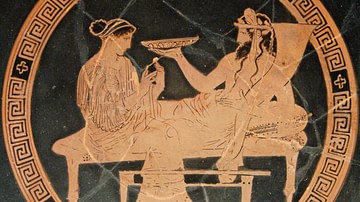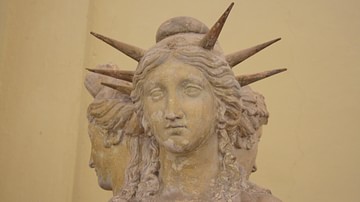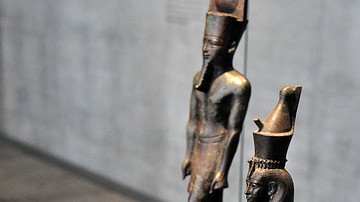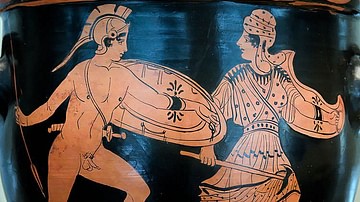Video
Hecate is the goddess associated with magic, witchcraft, the moon, doorways, the night, necromancy, and ghosts in Greek mythology. She is the goddess of boundaries, the guardian of crossroads and the protector of athletes, warriors, horsemen, hunters, shepherds, fishermen, horsemen, women giving birth, and children. In Roman mythology, Hecate is known as Trivia.
In the Titanomachy, the battle for supremacy between the Titans and the Olympians, Hecate chose to fight on the side of the Olympians, and after the Olympians were victorious she remained a powerful goddess, and didn’t spend the rest of her days in Tartarus with her fellow Titans. Hecate is depicted with either three heads and one body, or three bodies and one head. Hecate is also often depicted with torches, a key or dogs, and her sacred animals are the dog and the polecat.
Hecate is best known from the myth of Hades and Persephone. After Hades abducted Persephone and brought her to the underworld to be his queen, Demeter, Persephone’s mother, searched high and low for her daughter. Only Hecate and Helios heard the cries of Demeter. Hecate produced torches to help in the search and Helios, as the one who pulls the sun chariot across the sky each day, told the goddesses that Hades took Persephone to the underworld.
— ATTRIBUTIONS —
You can find all attribution and credits for images, animations, graphics and music here - https://worldhistory.typehut.com/hecate-the-goddess-of-witchcraft-and-magic-in-greek-mythology-images-and-attributions-6268
The music used in this recording is the intellectual copyright of Michael Levy, a prolific composer for the recreated lyres of antiquity, and used with the creator's permission. Michael Levy's music is available to stream at all the major digital music platforms. Find out more on:
https://www.ancientlyre.com
https://open.spotify.com/artist/7Dx2vFEg8DmOJ5YCRm4A5v?si=emacIH9CRieFNGXRUyJ9
https://www.youtube.com/channel/UCJ1X6F7lGMEadnNETSzTv8A
— THUMBNAIL IMAGE —
https://www.metmuseum.org/art/collection/search/247597
The Metropolitan Museum of Art
CC0 / Open Access
Subscribe to this author
About the Author
![Kelly Macquire]()
Kelly is a graduate from Monash University who has completed her BA (Honours) in Ancient History and Archaeology, focussing on iconography and status in Pylos burials. She has a passion for mythology and the Aegean Bronze Age.
License & Copyright
Original video by Kelly Macquire. Embedded by Kelly Macquire, published on 21 September 2021. Please check the original source(s) for copyright information. Please note that content linked from this page may have different licensing terms.
The video and its description text are provided by Youtube. This website claims no authorship of this content; we are republishing it for educational purposes.







